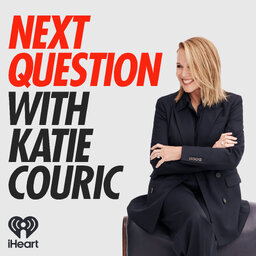The Democratic Disconnect with Astead Herndon and Charlamagne tha God
In this episode of Next Question, Katie is joined by Astead Herndon of The New York Times and Charlamagne tha God from The Breakfast Club for a pulse check on the polls, the rationale behind Kamala Harris’s campaign strategy, the struggles Democrats face to engage young Black voters, and the risks of relying on anti-Trump sentiment to win. We are down to the wire–buckle up for the final two weeks of the race!
 Next Question with Katie Couric
Next Question with Katie Couric


